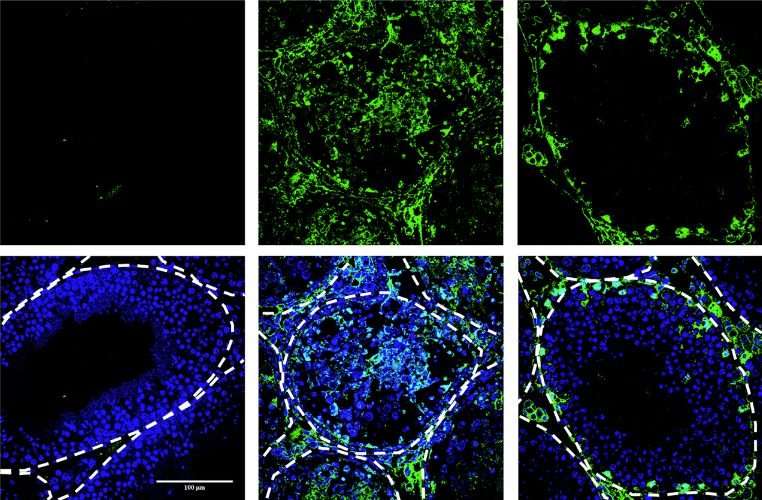Antioxidant treatment prevents sexual transmission of Zika in mice

The antioxidant drug ebselen can prevent sexual transmission of Zika virus from male to female mice, according to new research published in PLOS Pathogens by Yogy Simanjuntak and colleagues at Academia Sinica, Taipei, Taiwan. The results hint at a potential role for ebselen in preventing Zika spread among humans.
Zika virus usually causes mild symptoms in humans but has been linked with congenital microcephaly and Guillain-Barré syndrome. The virus jumps from person to person primarily via mosquitos carrying the disease, but recent research suggests that sexual transmission is also possible—most often from men to women.
In the absence of approved drugs or vaccines for Zika infection, researchers are exploring opportunities to prevent transmission. To gain new insights, Simanjuntak and colleagues investigated Zika infection and transmission from male to female mice.
The research team first examined the effects of Zika infection on mouse testicular tissue. They found that the virus damaged cells, impaired normal gene expression, damaged sperm, and infected sperm cells themselves. Notably, Zika caused signs of increased testicular inflammation and oxidative stress, a condition characterized by high levels of potentially damaging byproducts of normal cellular processes known as reactive oxygen species.
Next, the researchers treated infected mice with ebselen, an anti-inflammatory and antioxidant drug that can neutralize reactive oxygen species. They found that ebselen both alleviated the observed testicular symptoms and prevented sexual transmission of Zika via sperm from infected male mice to uninfected female mice.
While further research is needed to evaluate the efficacy of ebselen, these findings suggest a potential role for the drug in treating and preventing transmission of Zika in humans. Ebselen is already being investigated in clinical trials as a treatment for other diseases, including acute ischemic stroke.
More information: Simanjuntak Y, Liang J-J, Chen S-Y, Li J-K, Lee Y-L, Wu H-C, et al. (2018) Ebselen alleviates testicular pathology in mice with Zika virus infection and prevents its sexual transmission. PLoS Pathog 14(2): e1006854. doi.org/10.1371/journal.ppat.1006854





















